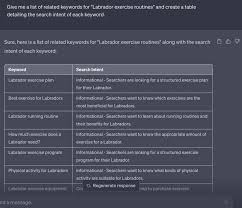The Ultimate Guide to Understanding the Significance of Long-tail Keywords in SEO
Welcome to your go-to guide for discovering the power of long-tail keywords in SEO! If you’ve been trying to make your website more popular on Google, you’ve probably heard of keywords. But did you know that using long-tail keywords can make your efforts even more effective?
Why Long-Tail Keywords Matter in SEO
Long-tail keywords are super important for a few reasons. First, let’s understand what they are. These are phrases usually made up of three to five words. For example, instead of just using “coffee” as a keyword, a long-tail keyword would be “best homemade coffee recipes.” They are more specific and often reflect what people actually type into Google when searching for something very particular.
Why does this matter? Because these specific phrases help drive targeted traffic to your website. When someone types in “best homemade coffee recipes,” they are more likely to be looking for exactly what you’re offering, rather than just browsing general coffee information. This means they are more likely to stay on your site and eventually become a loyal visitor or customer.
Benefits of Using Long-Tail Keywords
- Higher Conversion Rates: Because long-tail keywords are more specific, the traffic they bring is often more ready to make a purchase or take action.
- Less Competition: Broad keywords like “coffee” are super competitive. But “best homemade coffee recipes” faces less rivalry, making it easier for your site to rank.
- Better Audience Targeting: Long-tail keywords help you attract a specific type of visitor who is interested in exactly what you offer.
How to Find Long-Tail Keywords
Finding the right long-tail keywords involves a bit of research but don’t worry, it’s easier than you think. Here are some effective methods:
1. Use Google Autocomplete
When you start typing into the Google search bar, it suggests phrases based on what other people are searching for. For example, type “best homemade coffee” and see what comes up.

2. Try Keyword Research Tools
Tools like Semrush, Ubersuggest, and AnswerThePublic can generate thousands of long-tail keyword ideas. Simply type in a broad keyword, and they will show you a list of related long-tail phrases.
3. Look at Google Related Searches
Scroll to the bottom of Google’s search results page, and you’ll find a section called “Searches related to…” This can give you even more ideas for long-tail keywords.

4. Focus on Forums and Q&A Sites
Websites like Quora and Reddit are gold mines for discovering how people phrase their questions. You can use these exact phrases as your long-tail keywords.
3 Practical Tips for Using Long-Tail Keywords
- Create Specific Content: Write blog posts or articles that are highly specific to each long-tail keyword. This narrows your focus and attracts a more engaged audience.
- Incorporate Keywords Naturally: Don’t force keywords into your content. Make sure they fit naturally within your sentences to enhance readability.
- Use Keywords in Key Places: Include your chosen long-tail keywords in the title, headers, meta descriptions, and the first paragraph of your content.
Frequently Asked Questions about Long-Tail Keywords
Q1: What exactly are long-tail keywords?
Long-tail keywords are specific phrases made up of three to five words that are used to attract niche demographics. They have lower search volumes but higher conversion rates.
Q2: Why should I use long-tail keywords instead of short-tail keywords?
Short-tail keywords are very competitive and often too broad. Long-tail keywords are less competitive and draw in visitors who are closer to making a purchasing decision.
Q3: How do I know which long-tail keywords to use?
Use keyword research tools like Semrush or Google Keyword Planner to find relevant long-tail keywords that match the content you’re creating.
Q4: Can long-tail keywords help with Google Ads?
Yes! Long-tail keywords often have lower cost-per-click (CPC) rates and higher conversion rates, making them great for targeted ads.
Q5: How many long-tail keywords should I target?
It’s good to target a variety of long-tail keywords to cover all possible search phrases related to your content. Start with a few and gradually expand your list.
Wrapping Up: The Power of Long-Tail Keywords
To summarize, long-tail keywords are a crucial component of your SEO strategy. They help drive targeted traffic, increase conversion rates, and face less competition. By incorporating long-tail keywords into your content, you’re not only improving your SEO but also enhancing user experience by meeting specific search intents.
So, start exploring long-tail keywords today, and watch your website traffic and engagement soar!
Happy keyword hunting! 🎉


